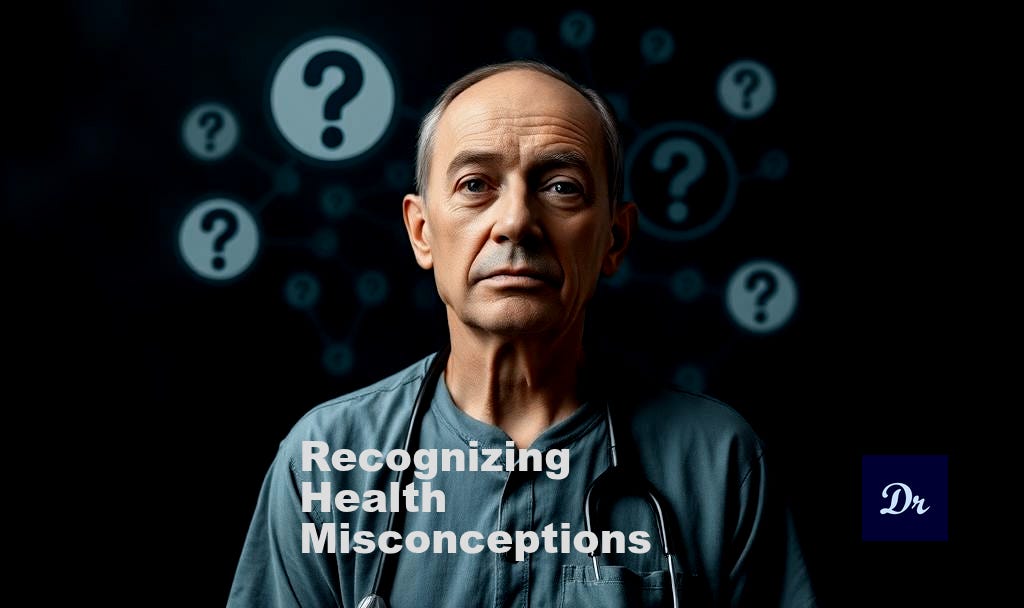3 Most Common Health Misconceptions in 2025
Buzzwords and popular ideas sometimes crowd out real health facts. Misinformation often repeats itself over a few decades, here's how to recognize it.
UPDATED: September 2nd, 2025
Welcome to the Healthy Aging Newsletter, a free publication translating trustworthy medical research into simple habits to age well, free of chronic disease. I’m Dr. Ashori, a family medicine doctor turned health coach.
1. You Need More Protein
In the history of nutrition science no single macronutrient has ever been shown to be superior to another. Just as there are no superfoods, there is no one ideal diet.
All we know about food so far is that those who eat a mostly plant-based diet have better overall health outcomes compared to those who eat more processed foods and more animal based foods.
Fallacy: “Both carbs and fats make you gain weight, proteins don’t.”
A better approach: If you’re not at risk of sarcopenia or protein deficiency, focus on the kind of diet that you enjoy, keeps you satiate, and is sustainable. For more muscle, focus on resistance training.
2. Avoid Foods That Spike Your Blood Sugar
If you don’t have diabetes, adjusting your diet so that every food keeps your blood sugar flat will push you toward mostly fats and proteins. But many foods that raise blood sugar, like grains, fruits, and some seeds, also deliver essential nutrients.
Health is not about avoiding every rise in glucose. The value of one food can outweigh its downsides. Popular advice often says that the healthiest diet is the one with the lowest blood sugar response, but that view overlooks the vitamins, minerals, and fiber found in those so-called “spiking” foods.
Fallacy: “High blood sugar is bad for diabetics and so it must also be bad for everyone else.”
A better approach: Focus on a balanced nutrition plan that gets you the right nutrients. If you are still concerned about blood sugar, consider adjusting your activity routine.
3. Perfect Cholesterol Numbers = No Heart Attack
Currently, if your LDL-C is normal, someone will suggest an Lp(a) or apoB, and if all that is normal they’ll suggest other cholesterol markers.
Even will all normal cardiovascular parameters a person can develop heart disease such as a heart attack or stroke. That’s because chronic conditions like heart disease have many different causes. It’s not just about cholesterol numbers.
Fallacy: “The main driver of heart disease is high cholesterol.”
A better approach: Determine your real risk of heart disease and create a strategy to lower that risk. If serum cholesterol is one aspect of this, of course, aim to lower that as well.
Recognizing Health Misconceptions
Anytime you read or hear something that sounds general and lacks nuance, it’s a good way to know that it falls under health misconceptions. While driving under the influence is universally bad, telling someone to just not drink and drive is misguided. People who are at risk for this condition need strategies, cues to signal an intervention, backup plans, and positive reinforcement for small wins.
In personal health, medications, lifestyle, diet, and even weight are all quite nuanced. As a physician, I’ve had lifelong smokers never develop cancer, hypertensive patients live well into their 80s, and young, healthy adults suffer terrible diseases. Medicine is complicated and we should treat it as the artistic science that it is.



